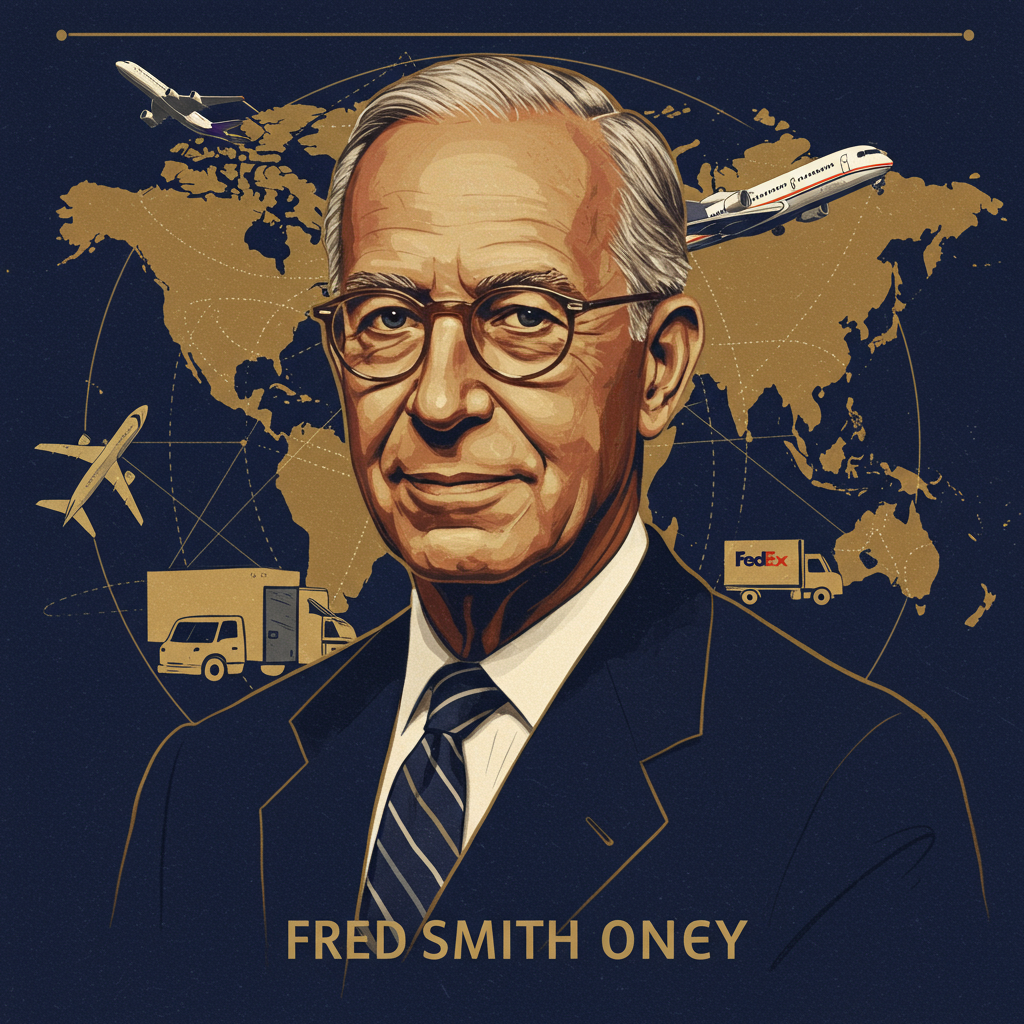Frederick W. Smith, the groundbreaking founder of Federal Express, the company now known globally as FedEx, passed away on June 21, 2024, at the age of 80. The company announced his death, noting he reportedly suffered a heart attack. Smith was widely credited with revolutionizing the world of logistics and setting the global standard for overnight delivery services.
For nearly five decades, Smith was the driving force behind FedEx. He served as the company’s Chief Executive Officer from its founding in 1973 until 2022, later taking on the role of Executive Chairman.
“Fred was more than just the pioneer of an industry and the founder of our great company,” current FedEx CEO Raj Subramaniam wrote in a memo to staff. “He was the heart and soul of FedEx,” embodying its core culture, values, integrity, and spirit, particularly the company’s “PSP culture” (People-Service-Profit). Subramaniam also described Smith as “a mentor to many and a source of inspiration to all,” as well as a “proud father, grandfather, husband, Marine, and friend.”
From Yale Idea to Global Network
Born on August 11, 1944, in Marks, Mississippi, Fred Smith’s visionary concept for an express delivery network originated while he was a student at Yale University. In a 1965 economics paper, he identified the critical inefficiencies of existing airfreight systems, which relied primarily on passenger routes ill-suited for time-sensitive goods. His proposal for a dedicated system centered around a main hub was reportedly met with only an average grade from his professor, but Smith remained convinced of its potential.
After graduating from Yale in 1966, Smith served a four-year term in the U.S. Marine Corps, including two tours of duty in Vietnam. His military experience, particularly in managing complex logistics and personnel under pressure, significantly influenced his later business strategies. He received commendations for his service, including medals for bravery and two Purple Hearts for wounds sustained in combat, leaving the military as a Captain in 1970.
Returning to civilian life, Smith’s brief foray into the aviation sales business underscored the practical need for the urgent parts delivery system he had envisioned. Federal Express was incorporated in 1971, initially targeting the transport of bank checks, but quickly expanded its scope. The company strategically moved its operations to Memphis, Tennessee, in 1973, recognizing the city’s central U.S. location, reliable airport, and favorable weather conditions – factors that would prove crucial for the ‘hub and spoke’ model he pioneered.
Overcoming Early Challenges and Driving Growth
The early years were fraught with financial peril. Federal Express faced skepticism and near bankruptcy in 1973 due to severe cash flow problems. Employees sometimes deferred cashing paychecks, and pilots occasionally used personal credit cards to buy fuel. In one famous instance, Smith reportedly gambled the company’s last funds in Las Vegas to secure just enough cash to keep operations running for a few more days. Despite calls for his resignation, Smith’s leadership was buoyed by the strong loyalty of senior managers who threatened to quit if he left. The company finally achieved profitability in July 1975, validating Smith’s tenacious vision.
A major hurdle for growth was federal regulation by the Civil Aeronautics Board (CAB), which restricted airlines’ routes and aircraft size. Smith became a vocal advocate for deregulation, lobbying intensely in Washington, D.C. His efforts, arguing that preventing his company from using larger planes and expanding its network stifled market demand, contributed significantly to the passage of the Air Cargo Deregulation Act in 1977. This legislative change allowed FedEx to acquire larger aircraft and rapidly expand its groundbreaking network.
Following deregulation, FedEx experienced explosive growth, reaching $1 billion in revenue by 1983 and expanding internationally, notably acquiring Flying Tiger Line in 1989. Under Smith’s leadership, the small startup with 389 employees and 14 planes handling 186 packages grew into a global enterprise with over 500,000 employees worldwide, operating a vast infrastructure including 705 aircraft and 200,000 vehicles, delivering millions of packages daily across more than 220 countries and territories, and generating annual revenues of $87.7 billion.
Beyond Logistics: NFL and Memphis Ties
Smith’s influence extended beyond the corporate world. He cultivated relationships with political leaders, advocating for policies like minimal trade barriers and collaborating with the government on initiatives such as the distribution of PPE and vaccines during the COVID-19 pandemic. He was even President George W. Bush’s initial choice for Defense Secretary, an offer he declined for medical reasons.
He also had notable ties to the National Football League, attempting to secure an expansion team for Memphis in the 1990s and later becoming a minority owner of the Washington franchise. Smith publicly supported changing the team’s original name, a stance that put him at odds with then-majority owner Dan Snyder and led to legal disputes. FedEx previously held the naming rights to the team’s stadium.
In Memphis, where FedEx is the largest private employer, Smith remained a significant figure in sports philanthropy. FedEx holds the naming rights to the Memphis Grizzlies’ arena, the FedEx Forum, and the company sponsors the PGA Tour event in Memphis and the FedExCup points competition. His family made a substantial $50 million donation towards renovations for the University of Memphis Tigers football stadium, Simmons Bank Liberty Stadium.
Despite founding a globally recognized corporation and maintaining political connections, Smith generally preferred a relatively private life, though he was well known in Memphis. He did make a brief, memorable cameo appearance as himself in the Tom Hanks film “Castaway,” which famously featured a FedEx employee stranded on a deserted island.
Fred Smith was a father of 10 children. His passing marks the end of an era for FedEx and stands as a testament to the power of a single, visionary idea born in a college paper, transformed through resilience and determination into a global force that fundamentally reshaped modern commerce and connectivity. Tributes from city and state leaders in Tennessee highlighted his profound contributions and positive impact on Memphis.


